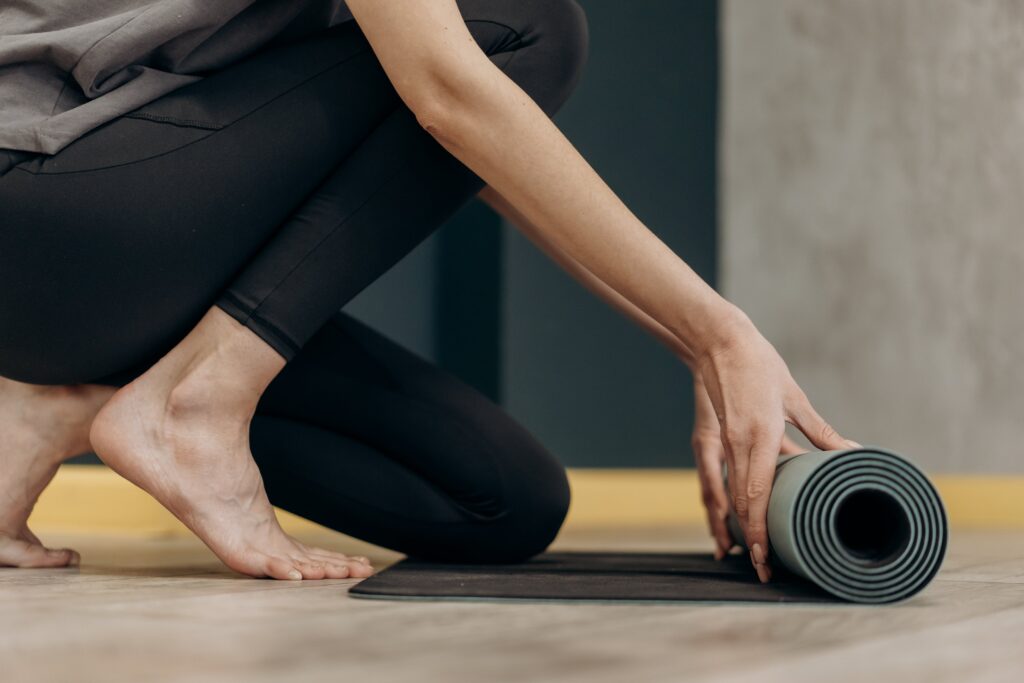
To Love Oneself is to Love All Others
Yoga offers a profound path to self-discovery. It gently guides us towards a deeper connection with our bodies, minds, and spirits. Yoga cultivates mindfulness, allowing us to observe our thoughts, emotions, and bodily sensations without judgement. This mindful approach fosters self-compassion and acceptance, nurturing a harmonious relationship with ourselves. Keep reading to explore how to first love oneself is to love all others.
Ahimsa: The Essence of Nonviolence
Ahimsa, one of ‘The Yamas’ or yogic moral codes is the Sanskrit word meaning “nonviolence,” a cornerstone of yoga philosophy. It advocates for kindness, compassion, and respect for all beings, extending beyond physical violence to encompass thoughts, words, and deeds.
Ahimsa extends to our self-talk, challenging the inner critic that often undermines our self-esteem. By practising ahimsa, we learn to cultivate compassion and understanding towards ourselves, recognising that our flaws and imperfections are part of the human experience. This self-compassion allows us to approach our challenges with resilience and self-acceptance.
Self-Love: The Foundation of Well-being
Self-love is the profound acceptance and appreciation of ourself, imperfections and all. It’s understanding our unique strengths and limitations, embracing our individuality without comparison or judgement. Self-love is not about egotism or entitlement; it’s about recognising our inherent worth and treating ourselves with kindness and respect.
Yoga, through its physical and mental practices, cultivates self-awareness and acceptance, laying the foundation for ahimsa, which in turn nurtures self-love. Self-love, with its unwavering compassion and acceptance, strengthens our yoga practice and amplifies the transformative power of ahimsa.
How Yoga Fosters Self-Love
Ahimsa, serves as the foundation for nurturing self-love. When we practise ahimsa towards ourselves, we cultivate a gentle and compassionate inner dialogue, replacing self-criticism with self-compassion. We learn to treat ourselves with respect and kindness, even during challenging times.
Yoga provides a unique framework for cultivating self-love. Through its physical postures, breathwork, and meditation techniques, yoga helps us:
- Connect with our bodies: Yoga encourages us to be present in our bodies, noticing our sensations, emotions, and limitations without judgment. This conscious connection fosters a deeper understanding and acceptance of ourselves.
- Embrace imperfection: Yoga teaches us that perfection is an illusion and that embracing our imperfections is a pathway to self-acceptance. As we learn to accept our bodies in all their forms, we extend that acceptance to ourselves as individuals.
- Develop self-compassion: The practice of yoga cultivates self-compassion, allowing us to treat ourselves with kindness and understanding, even when we make mistakes or fall short of our expectations.
- Build self-esteem: Yoga helps us recognise our strengths and capabilities, boosting our self-esteem and fostering a sense of self-worth.
Incorporating Ahimsa into Your Yoga Practice
Here are some ways to incorporate ahimsa into your yoga practice:
- Listen to your body: Pay attention to your body’s signals, avoiding overexertion or forcing postures that cause pain or discomfort. As you begin to listen you will find the balance between effort and ease, of control and surrender and when to push and when to let go becomes part of the creative process, part of the open-ended exploration of your well-being. Use your breath as a compass to guide you as to when to push and when to let go and recognise the power that resides in rest.
- Be patient with yourself: Comparison is the thief of joy. You are on your own individual and magical journey and when we start to honour this, we can try to stop comparing ourselves with others. This applies to everything in our life, both in and out of our control but it also extends to our bodies. We are all so wonderfully unique with different skeletons and this is obvious when we view a yoga class.
- Be Curious: Start to be curious and bring that lightness and curiosity to your yoga mat. Focus on what a posture feels like rather than looks like. Notice any emotions that arise, notice your breath, notice the mind and the stories it tells you. Ask yourself why it’s important to you to be able to do a headstand. Some poses will always be impossible for me because of my ankle joints, my spine , the lengths of my arms, legs and torso and that’s ok. So whilst we can improve, gain strength and flexibility, try to focus on your own journey and celebrate your individual growth rather than comparing your progress to others.
- Practice self-acceptance. Accept your current state of flexibility and strength without judgement: Sometimes I get frustrated with my body and its limitations. My hamstrings can be fairly tight and my back stiff in places. With persistence and consistency, day by day I can feel and see my flexibility and strength improving. Some days more than others definitely and the journey is not linear but even slow progress is progress.
- Listen to your body: My body, and yours is incredible. How it can adapt so well to what we put it through internally and externally, all the systems going on inside at any one moment, the energies flowing and the breaths we take- a whole universe within you. Love and accept your body, be present with it, be aware and notice what it tells you, even the whispers.
- Embrace the journey: Enjoy the process of learning and growing, rather than focusing solely on reaching goals. Observe your motivation for reaching these goals and be curious as to how they will truly benefit you or if it’s solely down to your ego.
Integrating these Principles into Daily Life
The principle of ahimsa is not confined to the yoga mat; they permeate every aspect of our existence. Here are practical ways to integrate these principles into our daily lives:
- Mindful Movement: Approach all tasks and interactions with mindfulness, paying attention to your thoughts, feelings, and intentions.
- Non-judgmental Awareness: Cultivate a non-judgmental attitude, acknowledging your emotions and experiences without criticism or self-deprecation.
- Self-compassion: Practice self-compassion, extending kindness and understanding to yourself, especially during challenging times.
- Kindness to Others: Treat others with kindness, empathy, and respect, regardless of their differences or perceived flaws. Practice active listening from a place of presence.
- Mindful Consumption: Make conscious choices about the products and services you consume, ensuring ethical sourcing and production.
The Ripple Effect of Harmony
By embodying ahimsa, we create a ripple effect of positive change. We radiate compassion, empathy, and understanding, fostering harmonious relationships and a more peaceful world around us. As we cultivate these principles within ourselves, we can become beacons of light, paving the way for a more harmonious and fulfilling existence whilst inspiring others to embark on their own journeys of self-discovery and transformation.
If you’d like more information on yoga philosophy please contact me or book here to practise with me in Marlow, Twickenham and online.
With love
Anney xx




